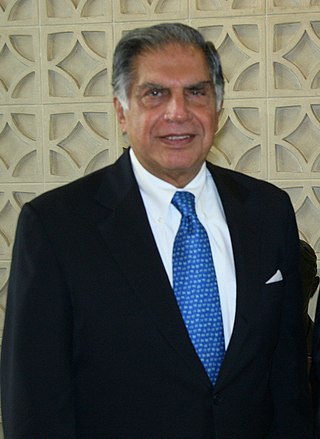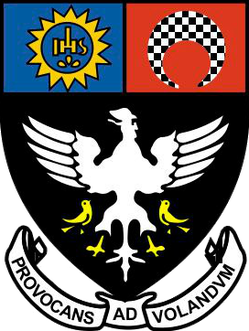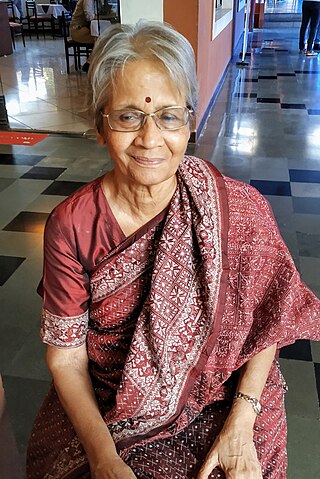Related Research Articles

Purushottam Laxman Deshpande, popularly known by his initials or as P. L. Deshpande, was a Marathi writer and humorist from Maharashtra. He was also an accomplished film and stage actor, script writer, author, composer, musician, singer and orator. He was often referred to as "Maharashtra's beloved personality".

The Indian Institute of Technology Bombay is a public research university and technical institute in Powai, Mumbai, Maharashtra, India.

Sir Ratan Naval Tata is an Indian industrialist, philanthropist and former chairman of Tata Sons. He was a chairman of the Tata Group from 1990 to 2012, and interim chairman from October 2016 through February 2017. He continues to head its charitable trusts. In 2008, he received the Padma Vibhushan, the second highest civilian honour in India, after receiving the Padma Bhushan, the third highest civilian honour in 2000.

Mambillikalathil Govind Kumar Menon also known as M. G. K. Menon, was a physicist and policy maker from India. He had a prominent role in the development of science and technology in India over four decades. One of his most important contributions was nurturing the Tata Institute of Fundamental Research, Mumbai, which his mentor Homi J. Bhabha founded in 1945.

St. Xavier's College is a private, Catholic, autonomous higher education institution run by the Bombay Province of the Society of Jesus in Mumbai, Maharashtra, India. It was founded by the Jesuits on January 2, 1869. The college is affiliated with the University of Mumbai offering undergraduate and postgraduate courses in Arts, Science, Commerce and Management. Xavier's was the first college to be granted autonomy by the University of Mumbai in 2010. In 2006, St. Xavier's was awarded the 'A+' grade by National Assessment and Accreditation Council (NAAC).

Elphinstone College is one of the constituent colleges of Dr. Homi Bhabha State University, a state cluster university. Established in 1823, it is one of the oldest colleges in Mumbai. It played a major role in shaping and developing the educational landscape of the city. It also played a pivotal role in the inception of the University of Mumbai.

Campion School is a private Catholic primary and secondary school for boys located at 13 Cooperage Road, Mumbai, in the state of Maharashtra, India. Established in 1943 by Jesuit Fr. Joseph Savall, the school is named in honour of Saint Edmund Campion, a 16th-century English Roman Catholic martyr.

Prakash Jha is an Indian film producer, actor, director and screenwriter, mostly known for his political and socio-political films such as Hip Hip Hurray (1984), Damul (1984), Mrityudand (1997), Gangaajal (2003), Apaharan (2005), and his multi-starrer films, Raajneeti (2010), Aarakshan (2011), Chakravyuh (2012), and Satyagraha (2013). He is also the maker of National Film Award winning documentaries like Faces After The Storm (1984) and Sonal (2002).
Vikalp is a network of documentary filmmakers and others interested in this issue, from India. It defines itself as a "platform to defend freedom of expression and to resist censorship." Currently, India has a film certification board, the functioning of which has raises concerns specially among documentary filmmakers. Vikalp has an associated website called Films For Freedom.

Tata Institute of Social Sciences (TISS) is a multi-campus public university in Mumbai, India. It is Asia's oldest institute for professional social work education and was founded in 1936 in the then Bombay Presidency of British India as the Sir Dorabji Tata Graduate School of Social Work by the Sir Dorabji Tata Trust. In 1944, the institute was officially renamed the Tata Institute of Social Sciences and in 1964, the Government of India declared TISS a deemed university under Section 3 of the University Grants Commission Act (UGC), 1956.

The Yoga Institute is a government recognized non-profit organisation, known as the oldest organized yoga center in the world. It was founded in 1918 by Shri Yogendra (1897-1989), who was one of the important figures in the modern revival of yoga. It is headquartered in Santacruz, Mumbai, India.

Shanta Gokhale is an Indian writer, translator, journalist and theatre critic. She is best known for her works Rita Welinkar and Tya Varshi.

Akash Khurana is an Indian actor, screenwriter, theatre artist and entrepreneur.
Caste on the Menu Card is a 21-minute documentary film made by students of the School of Media and Cultural Studies at the Tata Institute of Social Sciences (TISS), focuses on beef-eating practices in Mumbai, India. It portrays the prevalence of caste differentiation in food choices of people in Mumbai, how it causes exclusion, and touches upon concerns related to livelihood, social inclusion and human rights.
TISS was established in 1936 as Sir Dorabji Tata Graduate School of Social Work in Mumbai. It was renamed to its current name Tata Institute of Social Sciences in 1944. TISS Mumbai is the main campus of the TISS. In the year 1964, it was deemed to be a University under Section 3 of the University Grants Commission Act (UGC), 1956. TISS Mumbai provides various M.A., M.Phil & Ph.D programs. Over the years, TISS Mumbai is well known for its contribution through research in social work, social sciences, human resources management & health systems.
Surabhi Sharma is a filmmaker, educator and curator. based in Mumbai. India She has worked on several feature-length documentaries apart from some short fiction films and video installations. Her key concern has been documenting cities in transition through the lens of labour, music and migration, and most recently reproductive labour. Cinema verite and ethnography are the genres that inform her filmmaking.,

Vibha Bakshi is an Indian filmmaker, journalist, and founder of Responsible Films. She is known for her films that highlight issues of gender inequality. Vibha's most notable films as both director and producer include Daughters of Mother India and Son Rise. Both films are winners of the National Film Awards from the President of India. She is the recipient of four National Film Awards from the President of India.

Anjali Monteiro is a documentary filmmaker, media educator and researcher who lives in Mumbai. She is currently Professor and Dean at the School of Media and Cultural Studies, Tata Institute of Social Sciences. Jointly with K.P. Jayasankar, she has made around thirty-five documentary films on various subjects.

K.P. Jayasankar is a documentary filmmaker and researcher who lives in Mumbai. He is currently Professor at the School of Media and Cultural Studies, Tata Institute of Social Sciences. Jointly with Anjali Monteiro, he has over thirty-five documentary films and has over 30 national and international awards in film festivals.

Somnath Waghmare is an Indian documentary filmmaker based in the state of Maharashtra. His most prominent and most recent film, Battle of Bhima Koregaon, was critically received and screened in India and abroad. Till now, all his films have been documentary films and they have dealt with various social issues like the persecution of women and Dalit assertion in Maharashtra. He made his directorial debut with the short documentary feature I Am Not a Witch (2017). His upcoming films are Chaityabhoomi and Gail and Bharat.
References
- ↑ "Defying Directive, Students Screen Beef Documentary at Delhi's JNU". NDTV.com. Retrieved 4 November 2015.
- ↑ "TISS documentary on beef ban blocked by Films Division - Mumbai Mirror -". Mumbai Mirror. Retrieved 18 November 2015.
- ↑ "Awards". Tata Institute of Social Sciences. Retrieved 17 May 2011.
- ↑ "Center for Media and Cultural Studies". Archived from the original on 27 July 2008. Retrieved 12 June 2008.